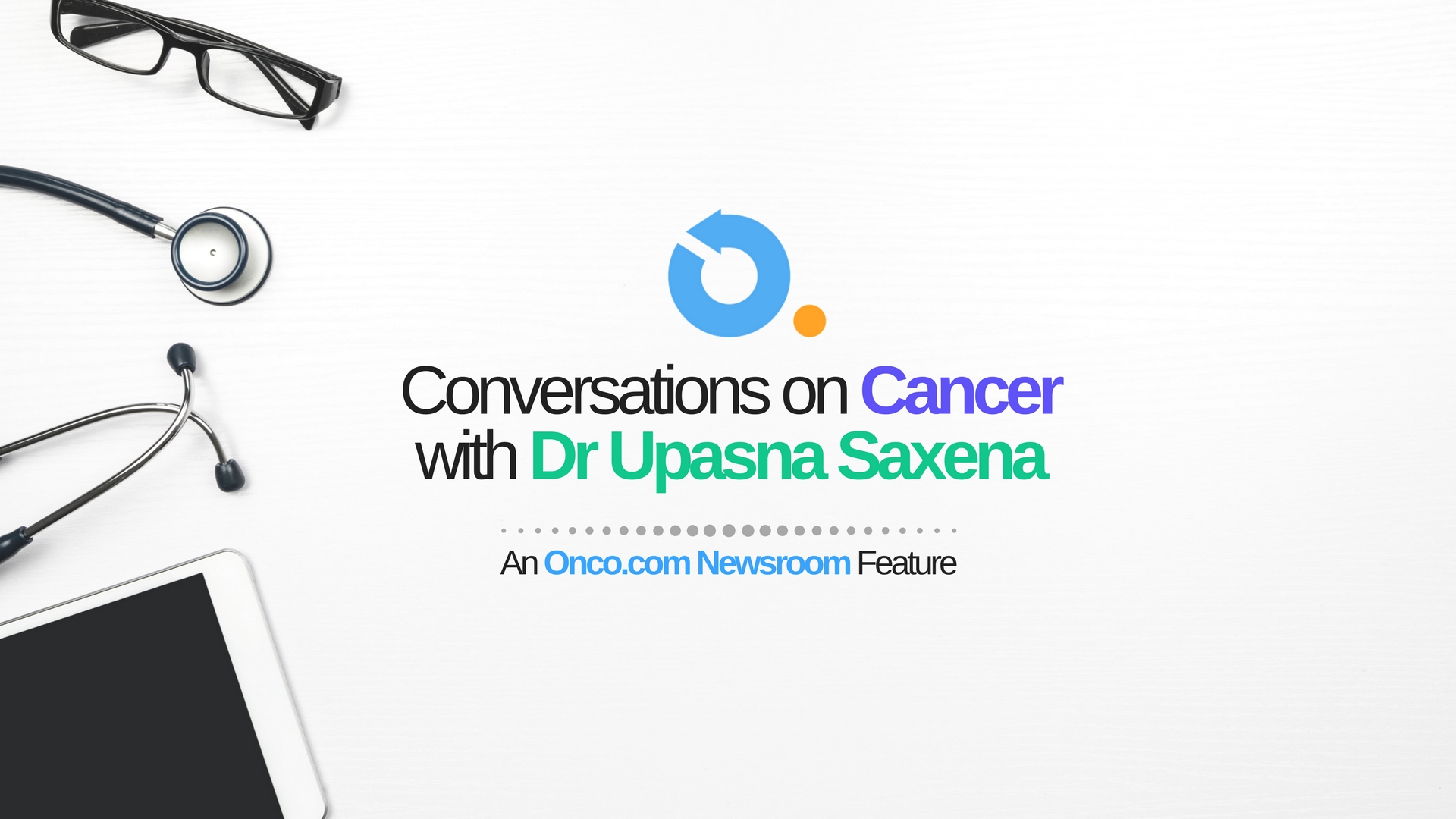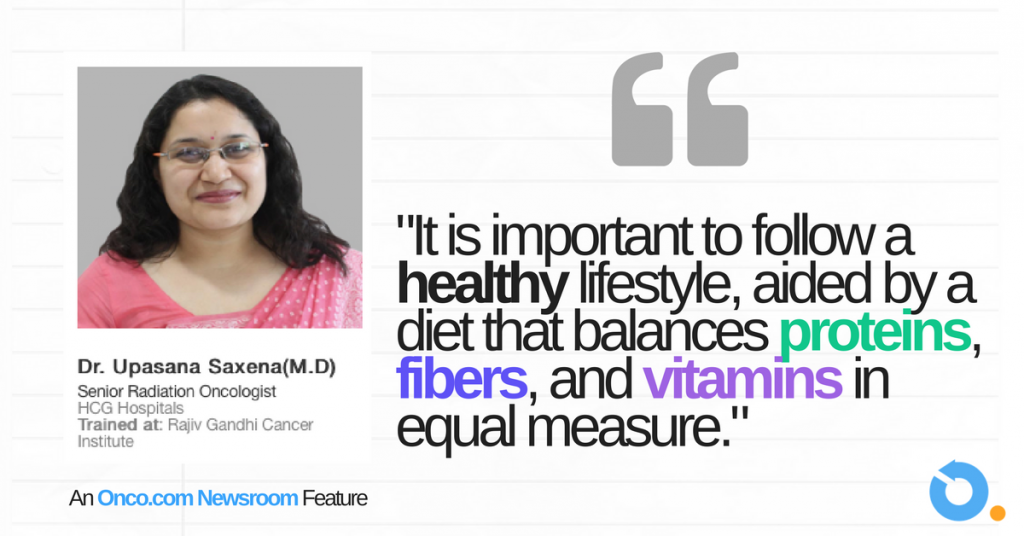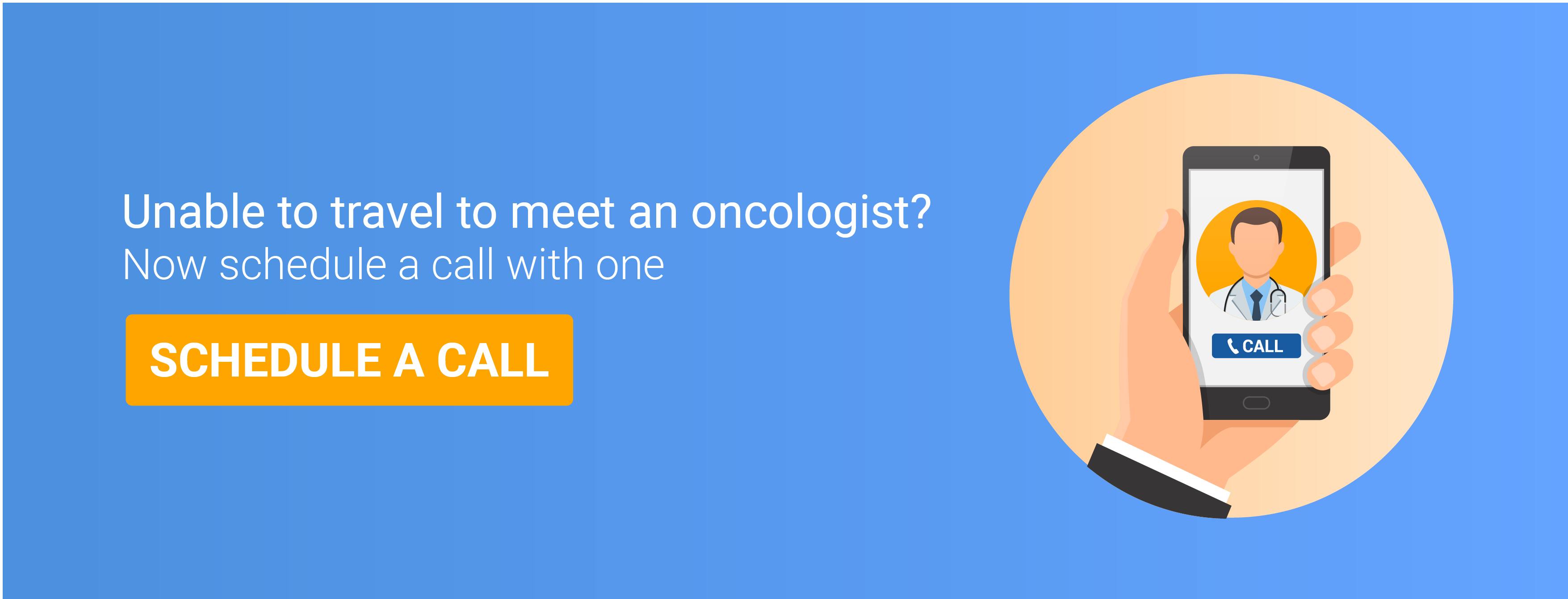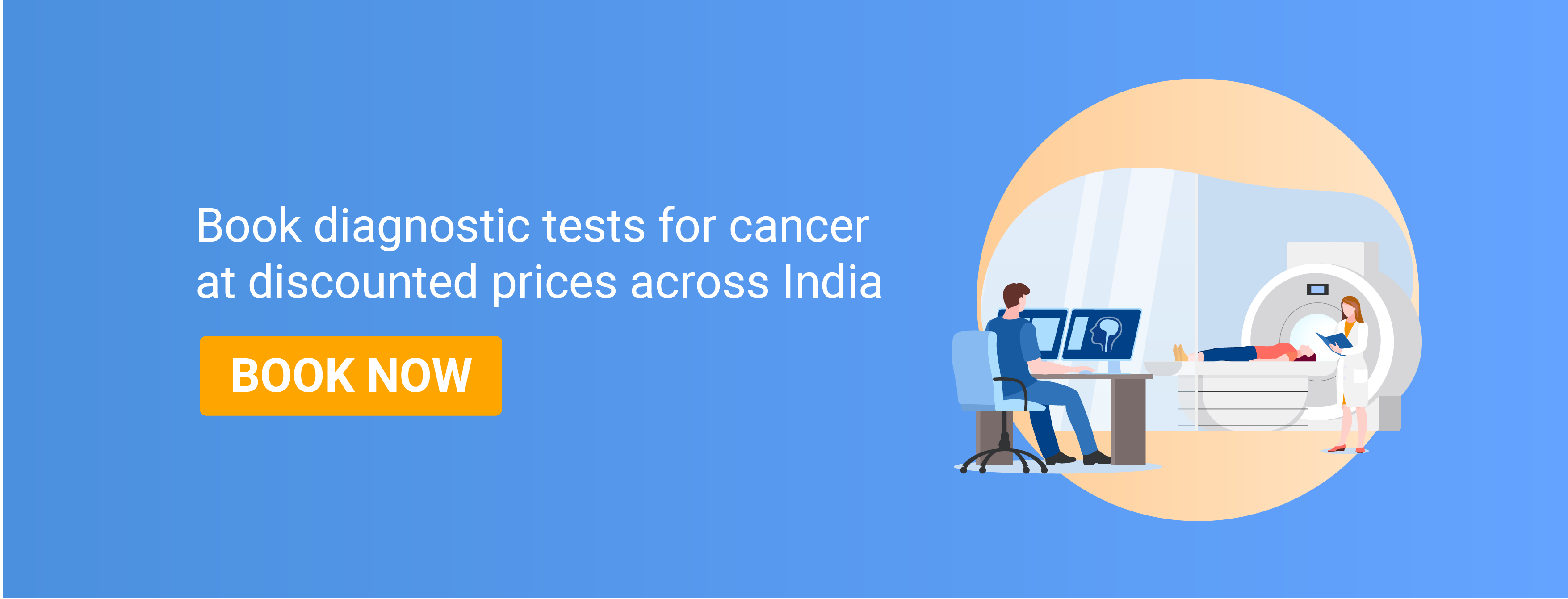Dr Upasna Saxena is a Senior Radiation Oncologist, who offers her opinions on the Onco.com Oncology Network.

She completed her MBBS in Radiation Oncology, followed by an MD from Madhya Pradesh, and stood out as a gold medalist at medical school. For the next five years, she trained at the Rajiv Gandhi Cancer Hospital and Research Institute (A premier institute of Oncology in India) and received the Best Resident Award. Here, she had the opportunity to observe and practice on a diverse range of Cancer cases, employing both simple and complex radiation techniques.
Post her residency at RGCHRI, she moved to Mumbai and has been practicing in the country’s commercial capital for the last two years. A delight among her patients, she is a penultimate expert in radiation therapy technologies such as IMRT, IGRT, VMAT, Stereotaxy (SRS/SRT), and Image-guided Brachytherapy. She is a noted public speaker at many Cancer-care conferences around the world and has received multiple awards for the same.
The Onco.com Newsroom team is delighted to engage her in a candid conversation about her life as an oncologist, and her projections about the Cancer care universe.
Please tell us a little bit about yourself – Where you grew up, your family, your interests & hobbies, your growing up years, etc
I was an army kid, which translates into a dedicated and hardworking student. My father served as a doctor in the Indian Army for a solid 35 years! I was born in Bhopal (MP) and a large part of my childhood was spent traversing the country and absorbing a mix of various cultures – ranging from J&K to Punjab, Chennai, Bihar, and Madhya Pradesh. Our vacations also served as great exposure to international culture. As a kid, I received a fair share of encouragement from my parents and elder siblings to stay as active as possible.
Consequently, I spent a lot of time on co-curricular stages, juggling between dance, theatre, debating, all forms of outdoor sports including cycling, Badminton, and swimming. I was also an avid reader and dabbled in poetry and prose to express myself. I truly believe that the vision of my parents has been a major contributor to how my life shaped up, and I feel blessed and grateful for this.
What made you choose Radiation Oncology as a medical specialization?
My first brush with oncology happened when I was a second-year med-school student. My bua (aunt) was diagnosed with Advanced Carcinoma of the Stomach, and I was by her side during her 13-month struggle with the disease. That brought me some sensitivity towards what Cancer patients need and expect, even though these needs might seem extravagant to doctors and caregivers.
My affinity towards radiation gadgetry pushed me to pursue radiation oncology as a specialization – I remember being very impressed with the devices that I saw and fiddled with, at Oncology centers. I’m happy about my choice today – because I now realize that not every Cancer treatment journey has to end in pain like my aunt, and that we’re getting closer and closer to a very real ‘Cure’ for Cancer. I feel elated because today we have access to treatments that can reasonably ‘Free’ patients from Cancer.
Personally, I am willing to go that extra mile and do what it takes to remove any taboo associated with the word ‘Cancer’, by participating in awareness campaigns, promoting regular screening drives and educating people about the many benefits of early diagnosis and its direct benefits on treatment outcomes and an eventual ‘Cure‘.
What is your source of daily motivation at work?
One of my biggest enablers is the fact that I get to “treat” people with a fatal disease. I like the fact that we as doctors get to spread the right kind of awareness about the curability of cancer and to slay fears associated with a Cancer-diagnosis.
What do you think is missing in the Cancer Care landscape? (in India, and the rest of the world)
The greatest gaps in Cancer care are still on the lines of awareness about Cancer diagnostic systems, and the availability of adequate infrastructure to treat patients who end up getting diagnosed.
Moreover, there seems to be an element of social “taboo” surrounding Cancer in India, which actively inhibits patients from seeking the right medical attention at the right time.
There are financial and logistical issues associated with availing treatment, which need to be solved at both national and international scale.
Furthermore, patients need to hear and read more about ‘survivor’ stories to give them the right kind of motivation to start and continue on their respective treatment journeys.
In your opinion, what are some preventive measures that one can take to avoid developing cancer (Preferably, for the types of cancers that you interact with, the most)?

I think it is important to follow a healthy lifestyle, aided by a diet that balances proteins, fibers, and vitamins in equal measure. A combination of fresh and organic (free from preservatives) fruits, vegetables, and salads are highly recommended. This, coupled with a generous amount of daily exercise can contribute a great deal towards preventing Cancerous mutations.
Additionally, people should strive to avoid exposure to carcinogens in the form of smoke, alcohol, preservative-laden food items, refined flour, red meat, and other known carcinogens.
Lastly and most importantly – people should opt to attend Cancer screening drives, whenever such an opportunity presents itself. Screening discipline will lead to early diagnosis, and will greatly improve the odds of better treatment outcomes.
What is that one thing you wish your patients knew before they started their treatment?
“I wish my patients realized that a Cancer diagnosis is not a death sentence.”
The phase in which people undergo treatment is naturally very tough. But so is any other treatment journey – the ones we associate with accidental trauma, or diabetes, even. Many such (non-Cancer) treatments last for entire lifetimes! Once people start developing an internal resistance against Cancer-led depression, they will embrace hope. Once they embrace hope, it will empower them with positivity and the right support systems. They will let go of their denial and truly ‘accept‘ treatment. They will cope with Cancer better.
That’s what I wish for.
What makes you optimistic about the future of cancer care?
Today, we understand the nature and biology of Cancer better than ever before. There are advances in treatment, such as minimally invasive surgeries, milder radiation therapy, better Chemo-Immunotherapy, etc – which can achieve treatment outcomes that were previously unattainable.
Better diagnostic systems are translating into earlier diagnosis and contributing to a visible increase in survival rates. There is a stream of ongoing support for Cancer patients – both financial and motivational, from organizations of varying scales. I think we are better equipped to fight Cancer today, than ever before.
Thanks for reading!
Dr. Saxena and many other expert oncologists like her, continue to provide their expert opinion on unique Cancer cases. You can avail a written consultation report from Dr. Saxena or anyone else from our panel of experts, by signing up at Onco.com today.



